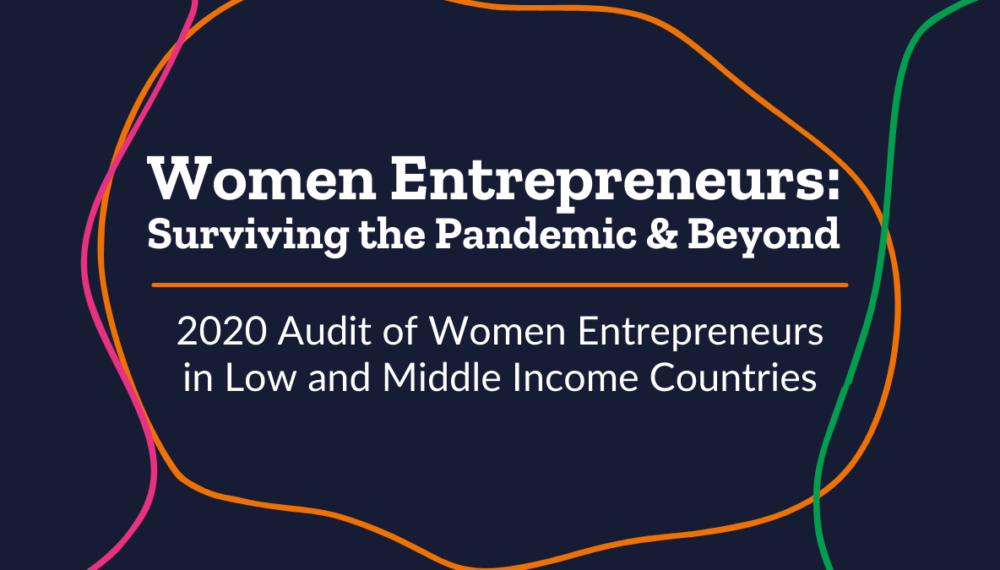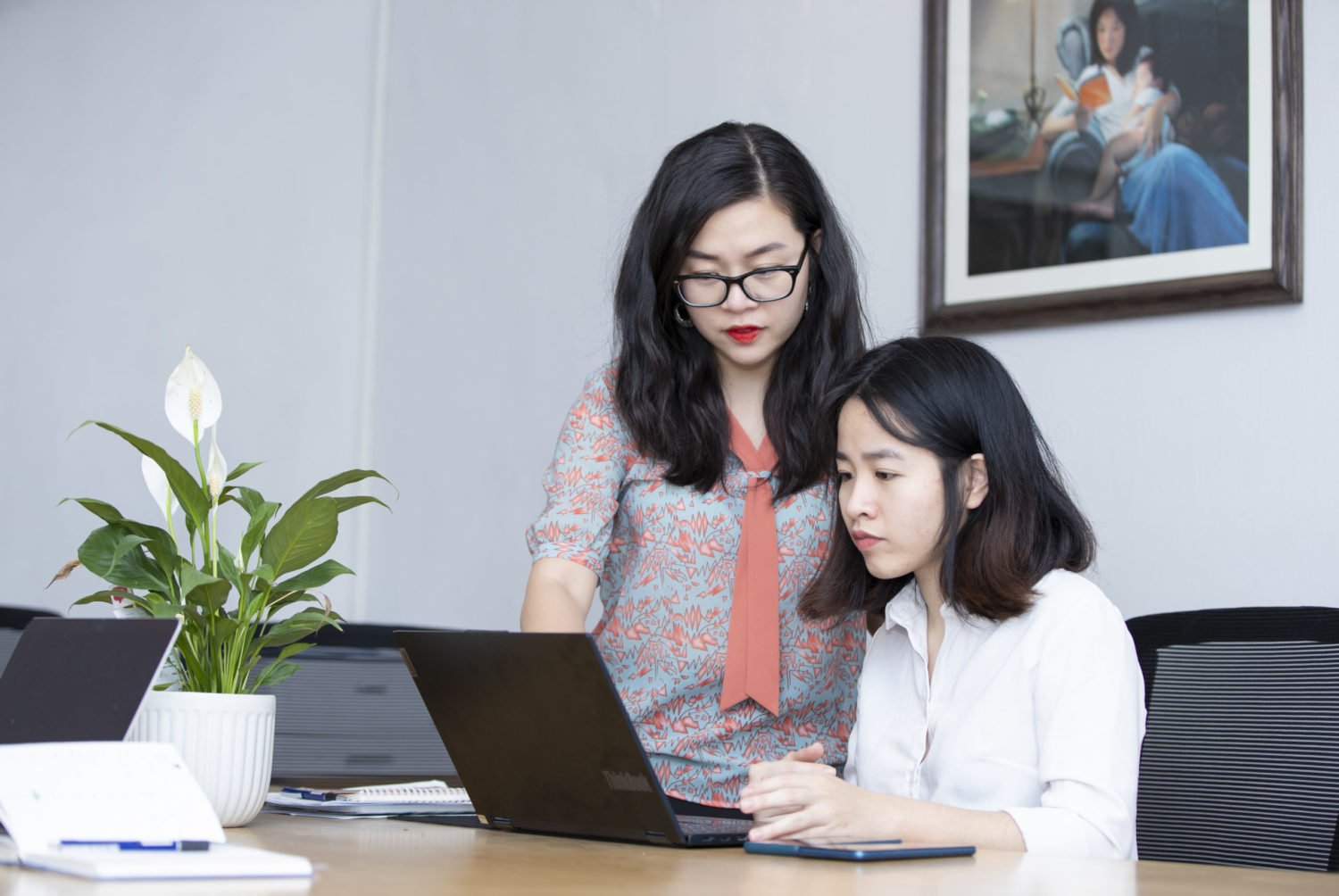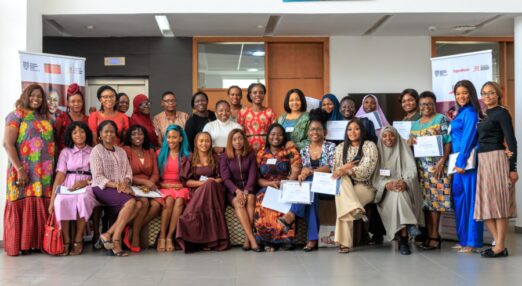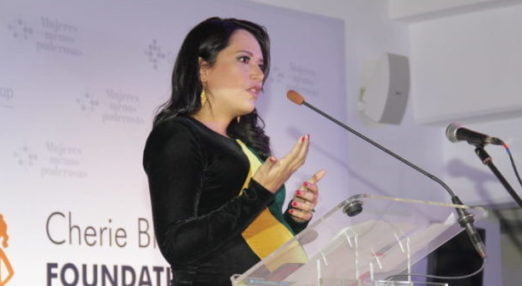Seven Years of the SDGs
Women entrepreneurs have never been more important to the advancement of the United Nations Sustainable Development Goals - yet they remain left behind

The 25th of September marks the seventh birthday of the Sustainable Development Goals (SDGs). Our Director of External Affairs, Sian Hawkins, looks at the lay of the land for women’s entrepreneurship as we close in on the halfway point to achieving the SDGs.
The SDGs were adopted by the United Nations in 2015 as a global blueprint to drive forward an agenda for peace, prosperity and improved outcomes for the planet and humankind.
Whilst some important progress has been made, the impact of the COVID-19 pandemic and conflicts around the world is exacerbating food, energy, humanitarian and refugee crises globally. These economic, political and social factors have a knock-on impact on progress towards all SDGs.
At the Foundation we are committed to playing our part in working towards achieving these goals. The outcomes of our programmes, offering training and mentoring support to women entrepreneurs in low and middle income countries, and our advocacy work directly feed into goal five: Gender Equality, and goal eight: Decent Work and Economic Growth.
It has long been known that a progressive agenda towards gender equality and equality of economic opportunity has a positive impact on everyone, not just women.
Progress hampered by the pandemic
Even before the pandemic the world was not on track to see gender equality realised by 2030, but the situation has worsened. In many areas indicators for goal 5 are falling further behind, including time spent on unpaid care and domestic work, sexual and reproductive health and gender responsive budgeting.
The economic fallout of the COVID-19 pandemic precipitated the greatest global economic crisis for decades and has seen a backslide in progress towards Goal 8. Particularly hard hit groups within the labour market are women, youth and disabled people. Small and medium sized companies have been especially impacted.
At the Foundation, we know deeply the impact of the COVID-19 crisis on women-owned micro, small and medium sized enterprises (MSMEs) in low and middle income countries. Our 2020 research ‘Women Entrepreneurs Surviving the Pandemic and Beyond’, conducted in the early stages of the pandemic, found most (83.8%) women surveyed reported that the pandemic had already had a negative impact on their businesses, and nearly four in ten (38.5%) reported their business would or may have to close as a result. Nearly one in ten (9.2%) reported that the impact of the COVID-19 pandemic was the single greatest challenge they had ever faced.
Women Entrepreneurs: Surviving the Pandemic & Beyond
This comprehensive report draws on responses from 125 women across 32 countries. It illustrates the stark impacts of COVID-19 on women entrepreneurs and other major barriers they face—such as gender stereotypes, legal challenges and lack of access to finance.

Women entrepreneurs are key to progressing the SDG agenda
The severity of the current challenges we face require urgent action and in this context progress towards the SDGS is more important than ever. There is also a strong reciprocity in the relationship between the SGDs and women’s entrepreneurship. Women entrepreneurs will not be able to enjoy true equality of economic opportunity and participation without the SDGs being achieved and women entrepreneurs hold an important role in driving progress towards these global goals.
It has long been known that a progressive agenda towards gender equality and equality of economic opportunity has a positive impact on everyone, not just women. This fact is perfectly exemplified in the case of women entrepreneurs: when women entrepreneurs succeed, there is an incredible ripple effect of impact on those around them.
In the case of Goals 5 and 8, and the predicament women entrepreneurs face when trying to set up and run businesses, the road to equality is long and time is short.
We know women are more likely to invest back into their families and communities. In fact, entrepreneurial activities undertaken by women are often borne out of a desire to improve their families’ financial situations. Many women are spurred on into entrepreneurship in order to be financially independent. In fact, nearly a quarter (23%) of women entrepreneurs taking part in our 2020 research reported that a key motivator for them starting their enterprise was to have control of their own finances. Consequentially, when women have increased control over the finances it often means greater investments in children’s health and education, in turn leading to increased life chances for the next generation.
Moreover, this investment back into communities is not just a welcome bi-product of women’s entrepreneurship ambitions, but is actually a key driver for them. Our research consistently shows that the key motivators for many women entrepreneurs were rooted in their desires to make a difference in their communities. Over 40% of participants our research told us this was one of their top three reasons to be an entrepreneur.
Crucially, a significant proportion (27%) of women also reported that they were motivated to become entrepreneurs to create jobs for others. Our programmes support this ambition and the creation of this ripple impact in women’s communities. In 2021 over 22,000 women entrepreneurs in low and middle income countries took part in our programmes and 32% of them reported subsequently increasing their employee numbers.

Eight years to go
Despite the clear economic rationale for investing in women entrepreneurs and comprehensive global commitments to reducing gender inequality and creating fairness of economic opportunity through the framework of the SDGs, the gender gap in entrepreneurship persists. We are way off meeting these targets by 2030.
At the Foundation we also need scale-up our work and our ambitions. Next year we will launch a new strategy which will also focus on the 2030 goal posts. This strategy will significantly see us powering-up our work, reaching many more women entrepreneurs, builder a stronger network of partners to boost our reach and boldly positioning ourselves as the convenor of a community of expertise on women’s entrepreneurships.
Through our new strategy we also recognise that the SDGs are not a panacea. For example, they do not measure the impact of gender stereotypes and harmful social norms on equality, which women entrepreneurs tell us are a major barrier for them. These gender stereotypes are holding women entrepreneurs back and also compound on all of the other barriers that women entrepreneurs face.
So alongside progressing work towards the SDGs we must continue our work to priorities raising awareness about the impact that negative gender stereotypes have on women entrepreneurs’ success and the need for these biases to be broken in order than women can have an equal chance of success.
Bold and urgent action is needed urgently if we are to get on track to meet any of the SDGs by 2030. In the case of Goals 5 and 8, and the predicament women entrepreneurs face when trying to set up and run businesses, the road to equality is long and time is short.
We hope you will want to join us on this journey.
Work with us to achieve the goals
-

Donate now
Our donors have supported over 250,000 women in low and middle income countries to start, sustain and grow businesses through our work. Your vital donation will help us reach many more.
Read more
-

Corporate and Institutional Partnerships
Purpose-designed collaborations that advance women's entrepreneurship.
Read more
-

Accelerate Board
Our global board of business leaders and visionary philanthropists are working to power our mission
Read more
